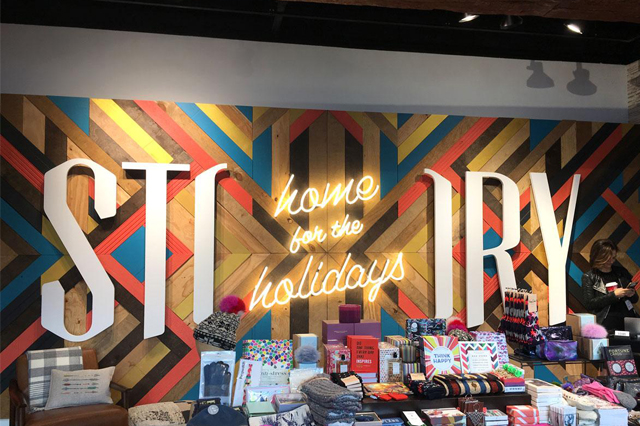
Web Developers
On Thursday, Fung Global Retail & Technology attended a 2016 Women Leaders in Retail, Technology and Finance celebration at the Story concept store in New York City. The event was hosted by Berns Communications Group, and approximately 25 women leaders in retail, technology and finance gathered informally for a preholiday breakfast to network, shop and honor innovators Yael Vizel, the co-founder of Zeekit, and Andrea Tobin, the co-founder of RevCascade. The event kicked off with networking and browsing in Story, the curated Manhattan store that hosts more than 200 brands and features more than 2,000 unique gifts and SKUs carefully displayed across multiple rooms.
The 2016 Women Leaders in Retail, Technology and Finance breakfast kicked off with event host Stacy Berns of Berns Communications Group welcoming everyone to the event. Berns introduced Story’s founder, Rachel Shechtman, who shared her inspiration for Story, a retail concept that takes the point of view of a magazine and changes like a gallery. Every four to eight weeks, Story reinvents itself, changing everything from the design to the merchandise, with the goal of highlighting a new theme, trend or issue. The current theme is “Home for the Holidays,” and the space features a fireplace, an afghan and candles that smell like fir trees. The store features subthemes throughout, with gifts for men in one room, gifts for children in another and even some irreverent gifts.
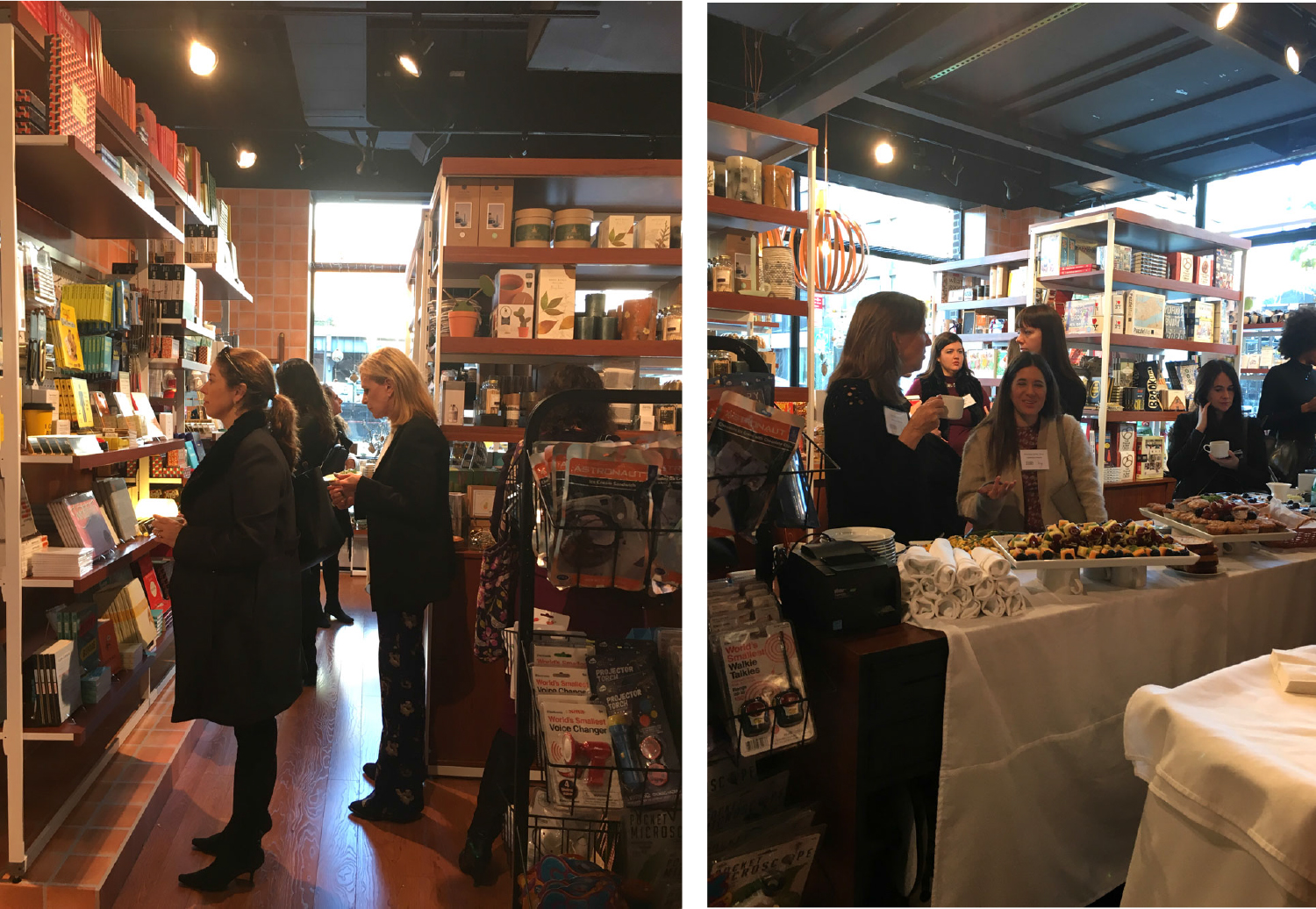
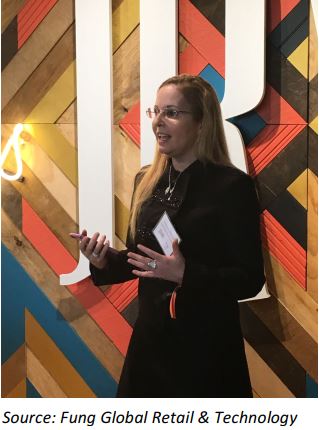 Deborah Weinswig introduced the two women innovators who were celebrated at the event, Yael Vizel, the co-founder of Zeekit, and Andrea Tobin, the co-founder of RevCascade. Weinswig noted that Zeekit is helping to make shopping fun again, which is ultimately driving higher sales. She also emphasized that the time is ripe for bringing brands and retailers together to drive sales in a marketplace environment, which is what RevCascade does.
Zeekit created a simple solution that helps shoppers have a fun and unique online shopping experience, virtually. Zeekit enables consumers to virtually try on items from a collection of more than 5 million outfits from more than 200 brands. Users can actually see what the items will look like when they are wearing them, get personalized size options and share the look with friends. A consumer could go through Zeekit’s entire catalog for two years and not be able to view the entire selection.
Vizel said she created Zeekit because earlier attempts at “try-on” technologies were too complicated and she was frustrated by the issue of fit when shopping online. Before Vizel tackled the digital retail space, she was a fighter-jet flight-simulator programmer in the Israel Air Force. She later became the first female commander of the telecommunications technical officers’ course, and she used that experience to help her to create the Zeekit model, which combines brand image processing, big data and e-commerce in a single tool.
Deborah Weinswig introduced the two women innovators who were celebrated at the event, Yael Vizel, the co-founder of Zeekit, and Andrea Tobin, the co-founder of RevCascade. Weinswig noted that Zeekit is helping to make shopping fun again, which is ultimately driving higher sales. She also emphasized that the time is ripe for bringing brands and retailers together to drive sales in a marketplace environment, which is what RevCascade does.
Zeekit created a simple solution that helps shoppers have a fun and unique online shopping experience, virtually. Zeekit enables consumers to virtually try on items from a collection of more than 5 million outfits from more than 200 brands. Users can actually see what the items will look like when they are wearing them, get personalized size options and share the look with friends. A consumer could go through Zeekit’s entire catalog for two years and not be able to view the entire selection.
Vizel said she created Zeekit because earlier attempts at “try-on” technologies were too complicated and she was frustrated by the issue of fit when shopping online. Before Vizel tackled the digital retail space, she was a fighter-jet flight-simulator programmer in the Israel Air Force. She later became the first female commander of the telecommunications technical officers’ course, and she used that experience to help her to create the Zeekit model, which combines brand image processing, big data and e-commerce in a single tool.
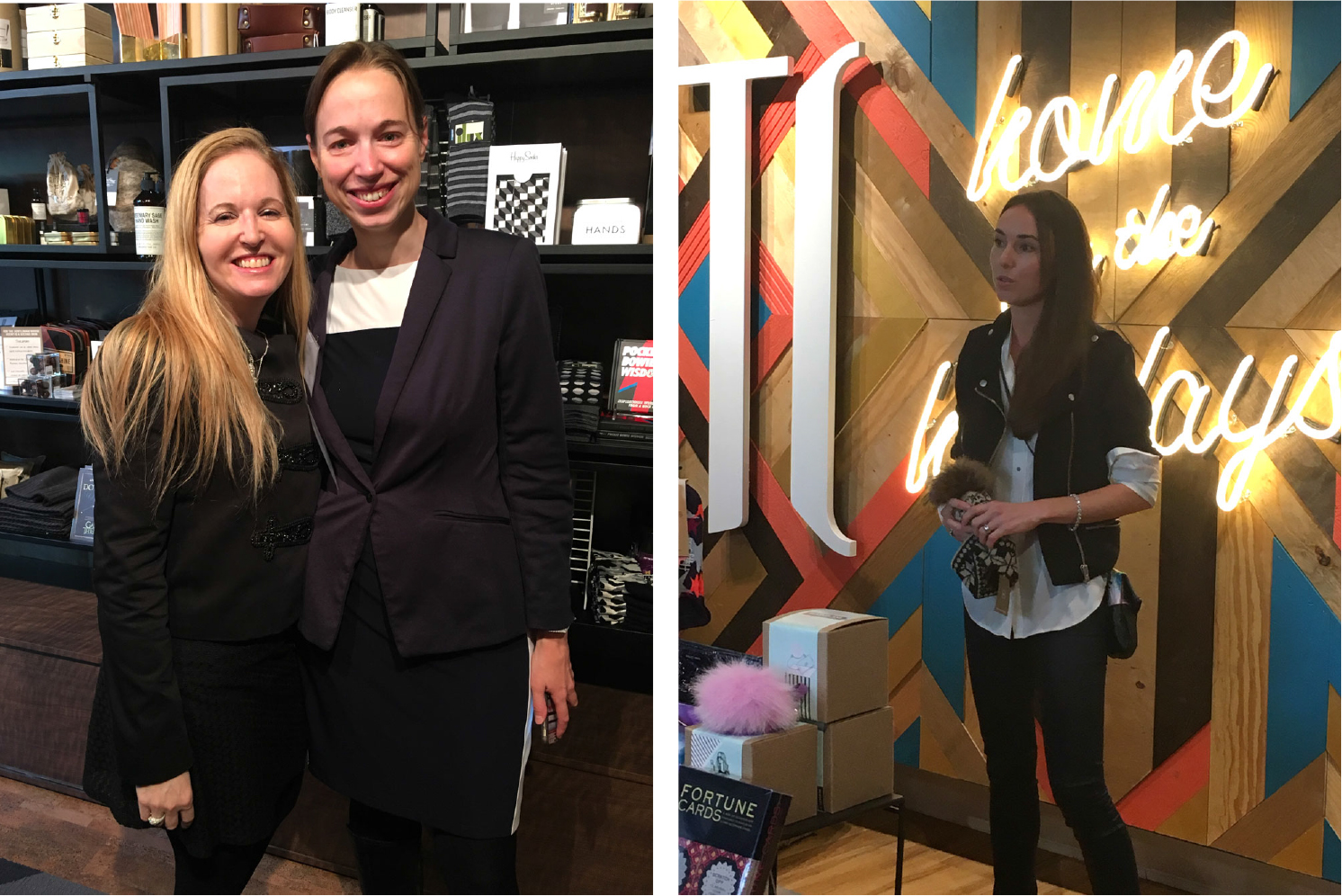
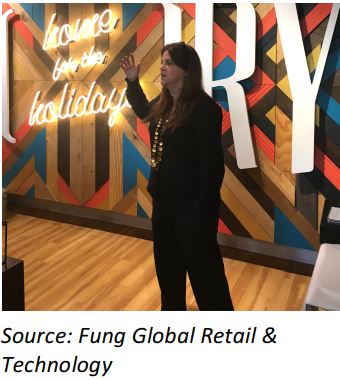 Insights from Story Concept Store Founder Rachel Shechtman
Insights from Story Concept Store Founder Rachel Shechtman
The 2016 Women Leaders in Retail, Technology and Finance breakfast kicked off with event host Stacy Berns of Berns Communications Group welcoming everyone to the event. Berns introduced Story’s founder, Rachel Shechtman, who shared her inspiration for Story, a retail concept that takes the point of view of a magazine and changes like a gallery. Every four to eight weeks, Story reinvents itself, changing everything from the design to the merchandise, with the goal of highlighting a new theme, trend or issue. The current theme is “Home for the Holidays,” and the space features a fireplace, an afghan and candles that smell like fir trees. The store features subthemes throughout, with gifts for men in one room, gifts for children in another and even some irreverent gifts.

Source: Fung Global Retail & Technology
Celebrating Innovators: Yael Vizel, Co-Founder of Zeekit, and Andrea Tobin, Co-Founder of RevCascade
 Deborah Weinswig introduced the two women innovators who were celebrated at the event, Yael Vizel, the co-founder of Zeekit, and Andrea Tobin, the co-founder of RevCascade. Weinswig noted that Zeekit is helping to make shopping fun again, which is ultimately driving higher sales. She also emphasized that the time is ripe for bringing brands and retailers together to drive sales in a marketplace environment, which is what RevCascade does.
Zeekit created a simple solution that helps shoppers have a fun and unique online shopping experience, virtually. Zeekit enables consumers to virtually try on items from a collection of more than 5 million outfits from more than 200 brands. Users can actually see what the items will look like when they are wearing them, get personalized size options and share the look with friends. A consumer could go through Zeekit’s entire catalog for two years and not be able to view the entire selection.
Vizel said she created Zeekit because earlier attempts at “try-on” technologies were too complicated and she was frustrated by the issue of fit when shopping online. Before Vizel tackled the digital retail space, she was a fighter-jet flight-simulator programmer in the Israel Air Force. She later became the first female commander of the telecommunications technical officers’ course, and she used that experience to help her to create the Zeekit model, which combines brand image processing, big data and e-commerce in a single tool.
Deborah Weinswig introduced the two women innovators who were celebrated at the event, Yael Vizel, the co-founder of Zeekit, and Andrea Tobin, the co-founder of RevCascade. Weinswig noted that Zeekit is helping to make shopping fun again, which is ultimately driving higher sales. She also emphasized that the time is ripe for bringing brands and retailers together to drive sales in a marketplace environment, which is what RevCascade does.
Zeekit created a simple solution that helps shoppers have a fun and unique online shopping experience, virtually. Zeekit enables consumers to virtually try on items from a collection of more than 5 million outfits from more than 200 brands. Users can actually see what the items will look like when they are wearing them, get personalized size options and share the look with friends. A consumer could go through Zeekit’s entire catalog for two years and not be able to view the entire selection.
Vizel said she created Zeekit because earlier attempts at “try-on” technologies were too complicated and she was frustrated by the issue of fit when shopping online. Before Vizel tackled the digital retail space, she was a fighter-jet flight-simulator programmer in the Israel Air Force. She later became the first female commander of the telecommunications technical officers’ course, and she used that experience to help her to create the Zeekit model, which combines brand image processing, big data and e-commerce in a single tool.
